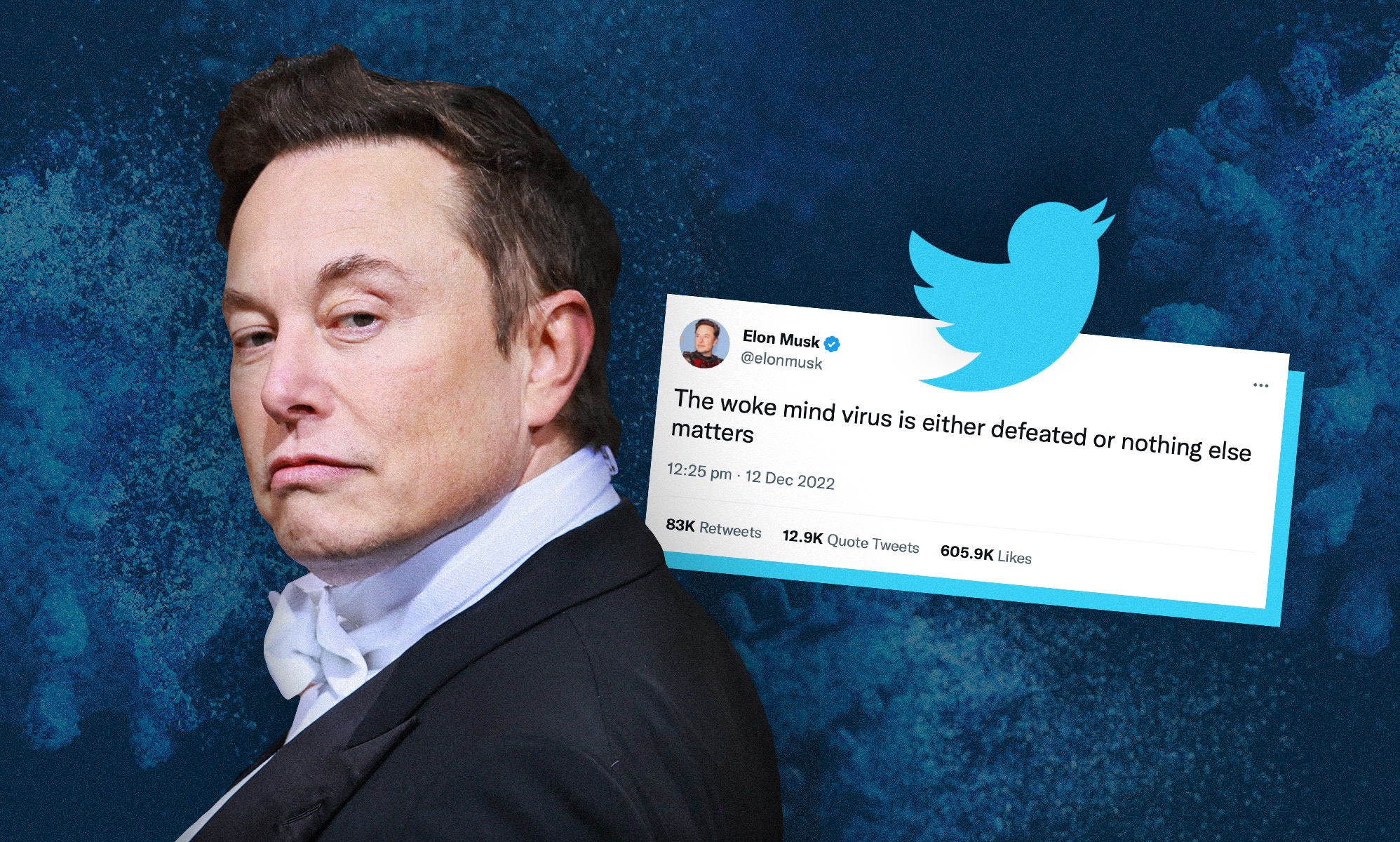Is a "woke mind virus" a genuine threat to modern society, or merely a convenient label for those who resist societal change? The rise of this provocative term, fueled by figures like Elon Musk, reveals a deep fissure in contemporary thought, challenging the very definition of social progress.
The phrase "woke mind virus" has rapidly infiltrated the lexicon of modern discourse, particularly within conservative circles. Coined to encapsulate the perceived dangers of progressive ideologies, it suggests that awareness of social injustices has morphed into an insidious force, infecting individuals with a mindset deemed overly sensitive and excessively focused on identity politics. Proponents of this viewpoint argue that the "woke mind virus" stifles free thought, promotes censorship, and ultimately undermines the principles of rational discourse.
The term gained significant traction, particularly on social media platforms like X (formerly Twitter). This rise in popularity coincided with a broader cultural and political polarization, where opposing viewpoints clashed fiercely over issues of race, gender, and social justice. The "woke mind virus" became a rallying cry for those who felt their values and beliefs were under attack by what they perceived as an increasingly intolerant and dogmatic left.
Elon Musk, the CEO of Tesla and SpaceX, has emerged as a prominent critic of the "woke mind virus". His views have been widely publicized, particularly after his acquisition of Twitter (now X), a move he has partially attributed to his concerns about the prevailing ideological climate. Musk has used his platform to denounce what he sees as the negative consequences of "wokeness," including censorship, intolerance, and the suppression of dissenting opinions.
| Category | Details |
|---|---|
| Full Name | Elon Reeve Musk |
| Date of Birth | June 28, 1971 |
| Place of Birth | Pretoria, South Africa |
| Nationality | South African, Canadian, American |
| Education | University of Pennsylvania (Bachelor of Science in Physics, Bachelor of Arts in Economics) |
| Profession | Entrepreneur, Engineer, Investor |
| Notable Positions | CEO of Tesla, CEO of SpaceX, Owner of X (formerly Twitter) |
| Net Worth | Estimated at $219 Billion (as of April 2024) |
| Key Accomplishments | Co-founded PayPal, Tesla, and SpaceX. Revolutionized the electric vehicle and space exploration industries. |
| Political Views | Often described as libertarian or politically independent, with a focus on free speech and technological innovation. |
| Website | Tesla Official Website |
In interviews and on social media, Musk has described the "woke mind virus" as a threat to modern civilization, claiming it leads to excessive sensitivity, a stifling of free expression, and an overall degradation of societal values. He often contrasts this perceived "woke" ideology with his own vision of progress, which prioritizes innovation, technological advancement, and individual liberty.
The term's origins can be traced back to the early 2020s, gaining traction among conservative commentators and thinkers. The expression gained momentum on platforms like X (formerly Twitter), where it became a shorthand for critiquing progressive viewpoints. Its a term that encapsulates a specific critique of progressive and social justice ideologies. It suggests that the initial goal of being "woke" - awareness of social injustices - has devolved into an ideology perceived as infectious and damaging.
Musk's critique of the "woke mind virus" extends beyond general societal observations. He has directly linked it to personal experiences, most notably concerning the transition of his child, Xavier, who is now known as Vivian Jenna Wilson. Musk has publicly expressed his belief that his child was, in his words, "killed" by this "woke mind virus," referencing the influence of societal pressures and ideologies on her decision. This has led to further debate around the use of puberty blockers in minors.
The debate surrounding the "woke mind virus" has sparked heated discussions, particularly regarding societal values, priorities, and the path toward social progress. Proponents argue that it is vital to protect traditional values and rational discourse from the perceived excesses of progressive ideologies. Critics, on the other hand, contend that the term is a mischaracterization, often used to silence legitimate concerns about social injustice and to undermine efforts to create a more equitable society.
The implications of the "woke mind virus" extend beyond the realm of online debate. Critics argue that it can lead to self-imposed isolation, as individuals become entrenched in echo chambers, limiting their exposure to diverse perspectives. The perceived emphasis on conformity and ideological purity can stifle creativity and innovation, while also damaging public discourse. Some see it as a tool to shut down conversations and label any dissenting opinions as unacceptable.
The term has faced criticism from various sides. Some view it as an oversimplification of complex societal issues, while others see it as a way to dismiss legitimate grievances and concerns. Many critics argue that the term is often used to stifle important conversations about social justice and equality, and it can create an atmosphere of fear and intimidation, where individuals are afraid to express their opinions.
Bill Maher, during an interview, echoed Musk's concerns, adding fuel to the debate. His willingness to discuss the topic further highlighted the controversial nature of the "woke mind virus." His perspective, even while defending slavery, underscores the deep-seated disagreements over societal values.
The "woke mind virus" debate reveals fundamental disagreements about societal values. These discussions often center around core concepts, such as individual freedom, social justice, and the role of government. These debates often highlight the differing views on the most effective paths toward a more just and equitable society.
The impact of the "woke mind virus" can have significant implications for individuals and society. Some argue that it can lead to social division, as individuals retreat into their own online bubbles. This can limit their exposure to diverse perspectives, fostering intolerance and hindering constructive dialogue. The term has also been criticized for promoting a culture of fear, where people are afraid to express their opinions for fear of being "canceled" or ostracized.
The concept of "wokeness," which originated with the awareness of social injustices, has also become a target of criticism, with some arguing that it has evolved into a form of "mind virus." This line of argument highlights the tensions surrounding the evolution of social justice movements and the challenges of maintaining a nuanced approach.
Musk's use of the term, combined with the echo of these views within conservative circles, has further amplified the debate. The repeated criticisms have led to a questioning of the influence of progressive views, particularly in relation to race and gender, in various facets of contemporary life.
In the style of a Linux command, Musk's tweet in December 2021, "traceroute woke_mind_virus," was a pointed critique. The subsequent mockery of command terminals underscores the ongoing nature of this discourse. It demonstrates the clash between traditional values and new progressive ideologies, a dynamic which continues to shape cultural and political debates.
The "woke mind virus" debate mirrors earlier dismissals of phrases like "political correctness." The use of such terminology demonstrates the ongoing challenges in maintaining a nuanced discussion about the complexities of social and cultural issues.


